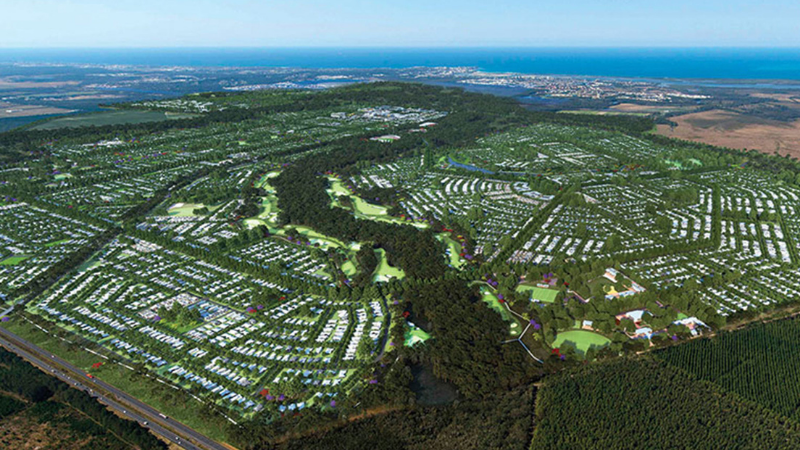Resources
Newsletter
Stay up to date and with the latest news, projects, deals and features.
SubscribeSunshine Coast is now home to the smallest lot sizes in south-east Queensland and the most expensive land, excluding Brisbane City, causing land constraint and affordability issues in the booming region.
Property researcher Terry Ryder’s report into the Sunshine Coast land supply issues has identified a lack of affordable housing and under-employment as key issues for the coast’s economy, as well as a diminished construction industry.
“There is economic impact if home building is curtailed through the lack of residential land,” Ryder said.
“Census data indicates that construction is the second-largest industry sector in terms of employment in the Sunshine Coast region.
“The land supply crisis has the potential to create an economic crisis for the region’s second biggest industry.
“The region is already feeling the pinch with both the building and hospitality industries struggling to find staff.
“There will be long-term impacts on major regional projects such as the new Maroochydore CBD, the Sunshine Coast airport expansion and the major health precincts if employees can’t find suitable accommodation for their staff.”
But the Sunshine Coast Council rejected Ryder's claims more needed to be done to unlock the coast's development potential.
The council's plan for growth on the coast was for 62 per cent of development to be infill in urban areas, while the balance would be greenfield development.
According to the Regional Australia Institute, the Sunshine Coast was predicted to be one of Australia’s fastest growing cities to 2030.
Current forecasts suggest the region would be home to 580,000 people in 2041, but with the long-term impacts of Covid-19 still to become apparent, it is difficult to know how accurate this picture is.

In the Sunshine Coast Land Crisis report, Ryder said the paucity of developable land was a critical factor for the region’s growth.
“It is important to understand that the Sunshine Coast’s population will increase and all of the data available indicates that the region has inadequate land to accommodate [it],” he said.
“There is very little land available for new residential developments and the council’s view on having adequate land supply [through infill development] looks to be clearly in question.”
One of the biggest residential development sites on the Sunshine Coast is Aura at Caloundra South, where developer Stockland brought forward the release of 56 of the 4000 lots on the site to accommodate the high level of enquiry.
The suburb, named Banya after the Bunya Tree, will compromise 4000 homes and townhouses when completed during the next 10 years, with 50,000 residents anticipated to move in.
Rise in median prices—Sunshine Coast
| Suburb | Jan '21 | April '21 | % change |
|---|---|---|---|
| Marcoola | $705,000 | $770,000 | 9.2% |
| Coolum Beach | $710,000 | $780,000 | 9.8% |
| Twin Waters | $850,000 | $930,000 | 9.4% |
| Sunrise Beach | $990,000 | $1,090,000 | 11.1% |
| Sunshine Beach | $1,975,000 | $2,050,000 | 3.8% |
| Noosa | $1,150,000 | $1,400,000 | 21.7% |
^Source: Sunshine Coast Land Crisis report
Property Council Sunshine Coast committee chair Brad Williams said there was a “real lack of housing product and diversity on offer” to the north of the Maroochy River.
“We certainly need to fast track some developable land north of the river or we will continue to feel the impact of our growing pains well into the foreseeable future,” Williams said.
Prices have increased between 9 and 21 per cent during the past three months on the Sunshine Coast.
A Directive Collective report released recently indicated that the Sunshine Coast would need a new suburb every year during the next 20 years to accommodate forecast population growth on the coast.
The report suggests that there is already an undersupply of 6500 dwellings, which would grow to 8500 dwellings required in 2026.
Directive Collective’s Mal Cayley said the shrinking greenfield opportunities meant the Sunshine Coast needed to focus on infill redevelopment opportunities into the future.